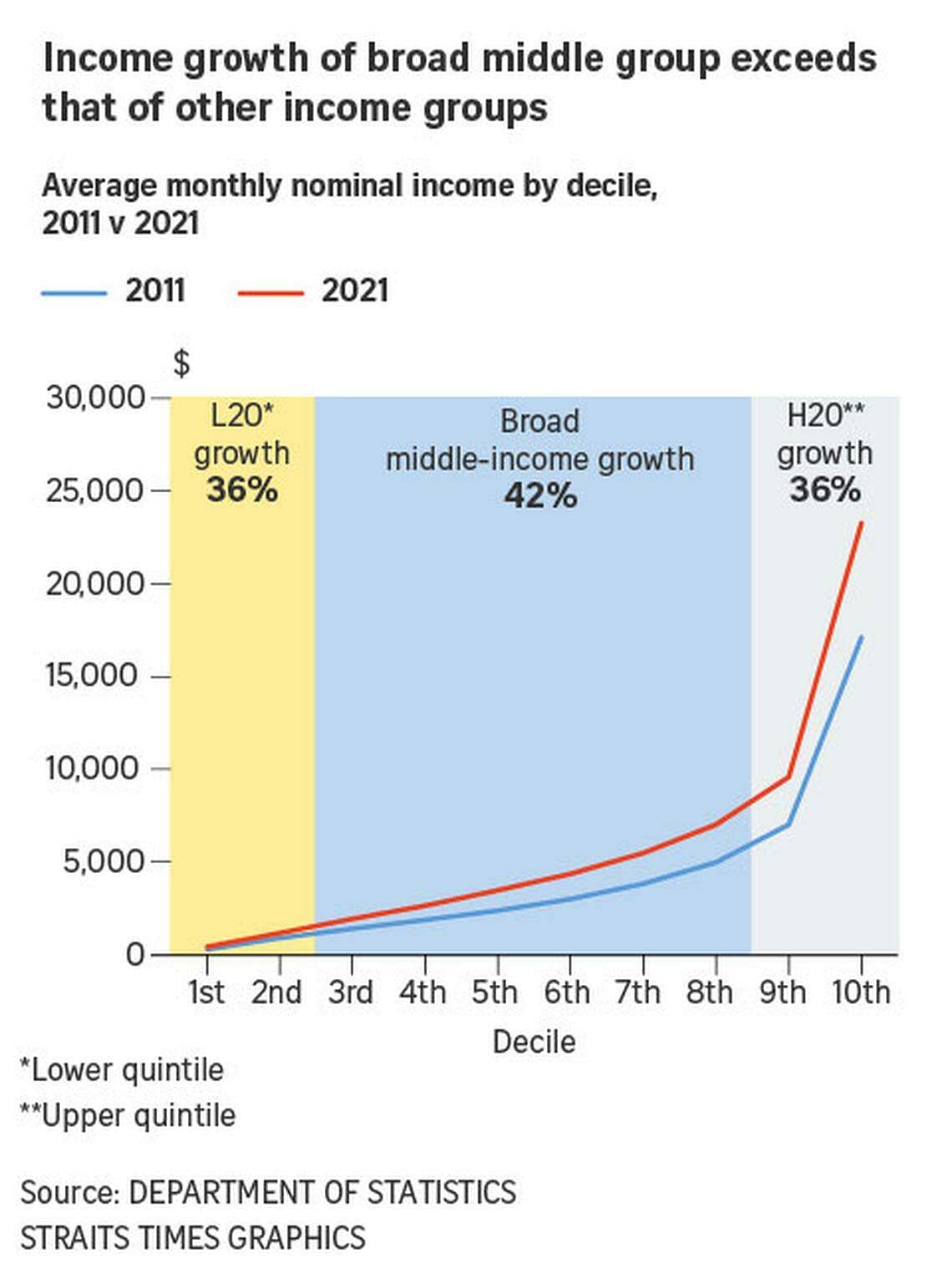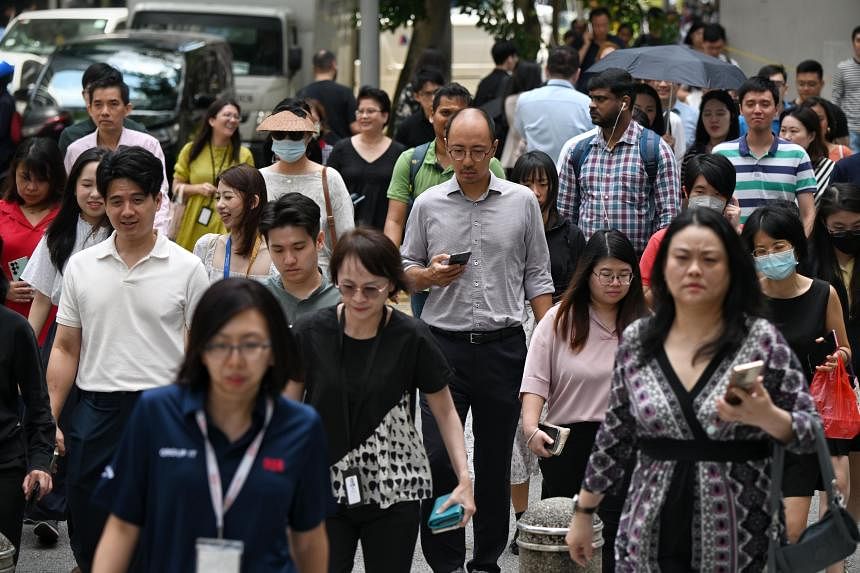SINGAPORE - Salary growth among middle-income workers here outpaced that of other income groups between 2011 and 2021, the Monetary Authority of Singapore (MAS) said in a report.
An analysis of average incomes over that period showed that nominal income – meaning it is not adjusted for inflation – for this “broad middle” group climbed 42 per cent, topping the 36 per cent growth for earners in the lower and higher brackets, the central bank said in its biannual macroeconomic review released on Monday.
The “broad middle” in the report refers to Singapore resident employees in the 21st to 80th income percentiles of their age cohorts.
Nearly half of these middle-income workers moved up the earnings ladder, with 45 per cent in 2011 climbing by at least one income decile or position in the subsequent 10 years, and 23 per cent advancing by two income deciles or more, added MAS.
Another 20 per cent to 25 per cent of these workers have remained in the same income decile since 2011, while the rest moved down one or more deciles.
Middle-income workers who moved to more productive or larger firms saw their incomes more than double over the 10 years.
In comparison, workers who remained in less productive or smaller firms saw smaller income growth of about 50 per cent over the same period.
From 2011 to 2021, middle-income workers largely remained in the same education band, but those who underwent further education saw a larger increase in average incomes than those who did not, MAS also noted.
The central bank said Singapore’s economic growth slowed to an average of 3.7 per cent a year for the period from 2011 to 2022, down from 5.9 per cent in the decade before, and will continue to slow in the next 10 years as demographic constraints such as a low birth rate and an ageing population become “more binding”.
MAS warned that the jobs and incomes of middle-income workers could be impacted by “structural shifts” in the next phase of Singapore’s economic growth, such as generative artificial intelligence and other technological changes.
It said these technologies could either have job-boosting effects, or result in job displacement if they are used to replace human labour, or if workers are not equipped with the right skills to take on new roles.
Middle- and upper-income workers will need to refresh their skills to make the necessary career transitions, it added.
MAS said: “The income growth of the broad middle depends on the corporate sector’s ability to take advantage of technology and scale in a dynamic economy, and tripartite effort to reskill and upskill workers to enable them to take on more productive and well-paying jobs.”
Looking ahead at broader labour trends, MAS said it expects labour demand to slow further in the next few quarters, but noted that hiring should stay supported in the domestic-oriented services and travel-related sectors.

Hiring in external-facing sectors, such as manufacturing and information and communications, could also firm up in the latter part of 2024, in line with the expected pickup in global growth.
However, MAS added that overall pay growth will ease in 2024, in line with the decline in nominal gross domestic product growth this year, following strong increases in the past two years.
MAS said: “This is likely to stem from lower bonus payments next year.
“More moderate wage gains in the near term are also corroborated by the Ministry of Manpower’s recent survey showing the proportion of firms with intentions to raise wages in the next three months falling to 18 per cent, from 28 per cent previously.”


